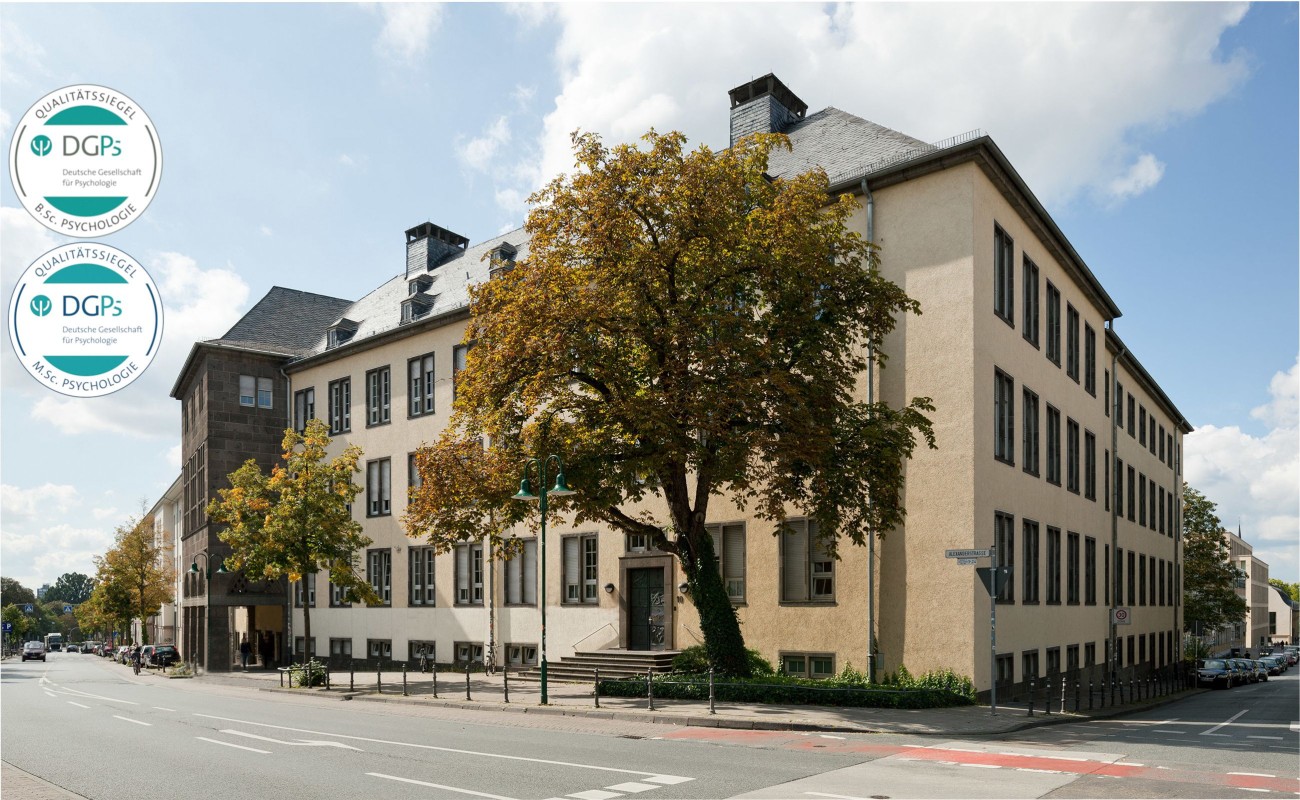Prof. Dr. Monika Undorf
Angewandte Kognitionspsychologie
Arbeitsgebiet(e)
Kontakt
monika.undorf@tu-...
work +49 6151 16-23853
Work
S1|15 221
Alexanderstr. 10
64283
Darmstadt
Sprechstunde nach Vereinbarung. Anfragen bitte per Mail an Sabine Ortler
• Metagedächtnis
• Metakognitionen
• Lernen und Erinnern
• Habilitation an der Universität Mannheim (2021)
• Promotion (Dr. rer. soc.) an der Universität Mannheim (2009)
• Studium der Psychologie an der Rheinischen Friedrich-Wilhelms-Universität Bonn und der Universität Mannheim (2000 – 2005)
• seit 2023: Professorin (W3) für Angewandte Kognitionspsychologie, Technische Universität Darmstadt
• 2017-2023: Margarete von Wrangell-Fellow (Nachwuchsgruppenleiterin) an der Universität Mannheim
• 2022: Fellow am Israel Institute for Advanced Studies, The Hebrew University, Jerusalem
• 2017: Visiting Scholar am Technion – Israel Institute of Technology, Haifa, Israel
• 2015-2017: Eigene Stelle, finanziert durch die Deutsche Forschungsgemeinschaft, Universität Mannheim
• 2006–2015: Wissenschaftliche Mitarbeiterin bei Prof. Edgar Erdfelder, Lehrstuhl für Kognitive Psychologie und Differentielle Psychologie, Universität Mannheim
• Fellowship am Israel Institute for Advanced Studies, The Hebrew University, Jerusalem, Israel (2022)
• Heinz Maier-Leibnitz-Preis 2020, verliehen von der Deutschen Forschungsgemeinschaft und dem Bundesministerium für Bildung von Forschung
• Auszeichnung als Rising Star in der Association for Psychological Science APS (2020)
• Psychonomic Society Clifford T. Morgan Best Article Award 2015 in Memory & Cognition (2015)
• Lehrpreis der Fachbereichsvertretung Psychologie für das beste Seminar im Akademischen Jahr 2014/2015 (2015)
• Otto-Selz-Preis für die beste psychologische Diplomarbeit an der Universität Mannheim (2006)

Fehler beim Laden der Daten
Beim Laden der Publikationsdaten von TUbiblio ist ein Fehler aufgetreten. Bitte versuchen Sie es zu einem späteren Zeitpunkt erneut.
-
{{ year }}
-
; {{ creator.name.family }}, {{ creator.name.given }}{{ publication.title }}.
; {{ editor.name.family }}, {{ editor.name.given }} (Hrsg.); ; {{ creator }} (Urheber) ({{ publication.date.toString().substring(0,4) }}):
In: {{ publication.series }}, {{ publication.volume }}, In: {{ publication.book_title }}, In: {{ publication.publication }}, {{ publication.journal_volume}} ({{ publication.number }}), SS. {{ publication.pagerange }}, {{ publication.place_of_pub }}, {{ publication.publisher }}, {{ publication.institution }}, {{ publication.event_title }}, {{ publication.event_location }}, {{ publication.event_dates }}, ISSN {{ publication.issn }}, e-ISSN {{ publication.eissn }}, ISBN {{ publication.isbn }}, DOI: {{ publication.doi.toString().replace('http://','').replace('https://','').replace('dx.doi.org/','').replace('doi.org/','').replace('doi.org','').replace("DOI: ", "").replace("doi:", "") }}, {{ labels[publication.type]?labels[publication.type]:publication.type }}, {{ labels[publication.pub_sequence] }}, {{ labels[publication.doc_status] }} - […]
-
Vollständige Liste bei TUbiblio ansehen Diese Liste bei TUbiblio ansehen


